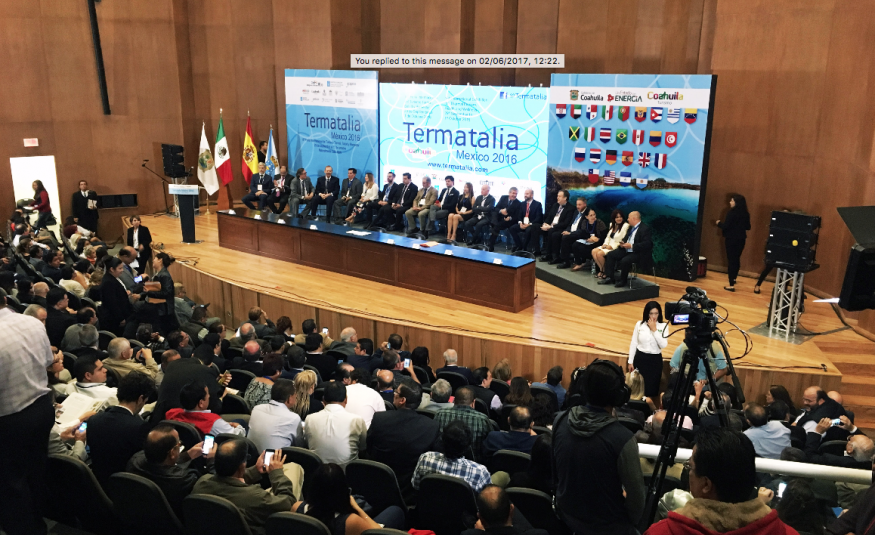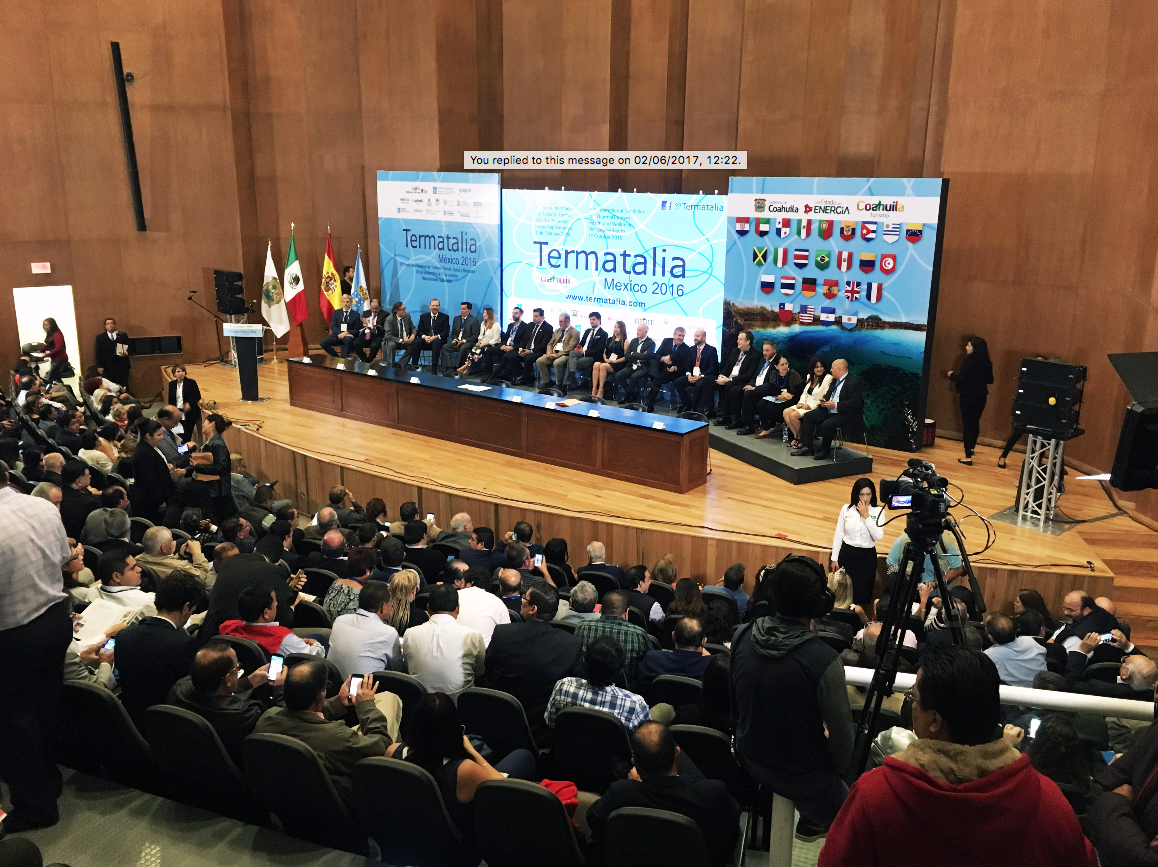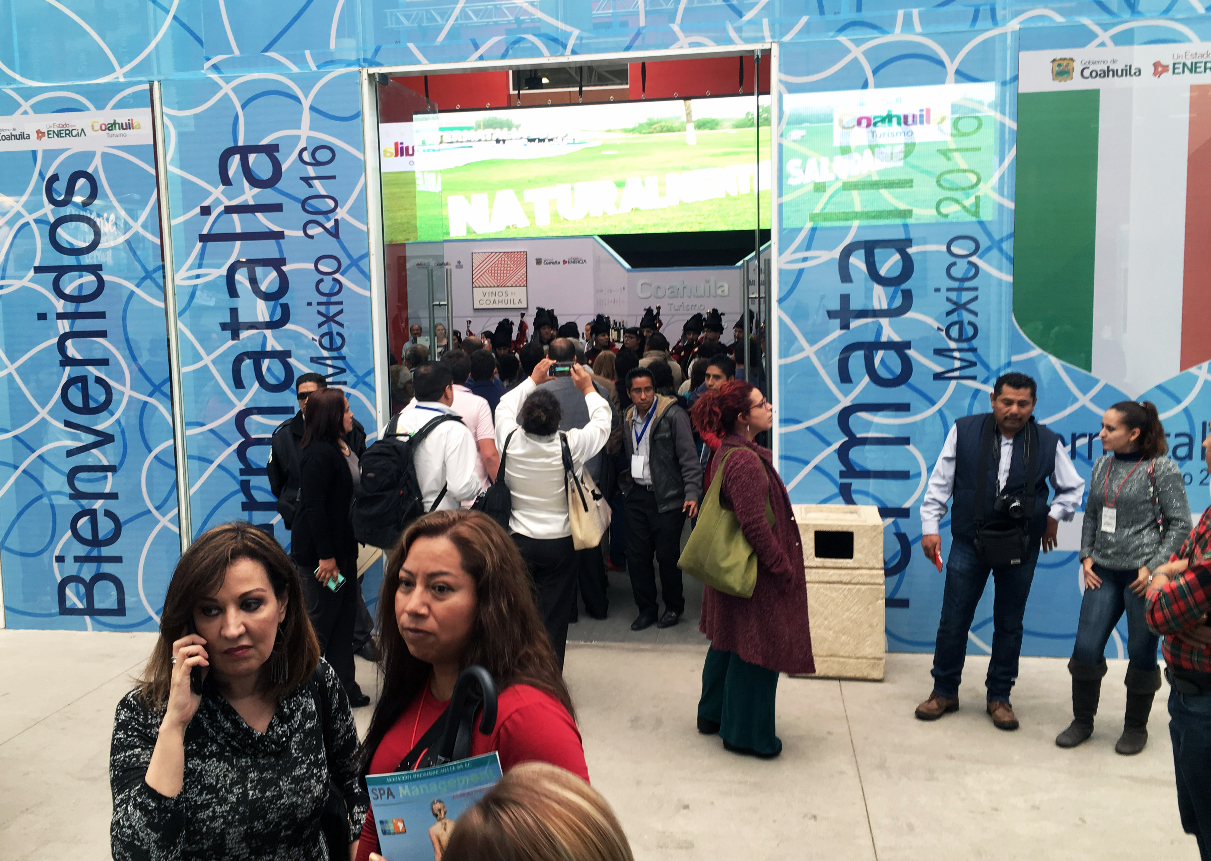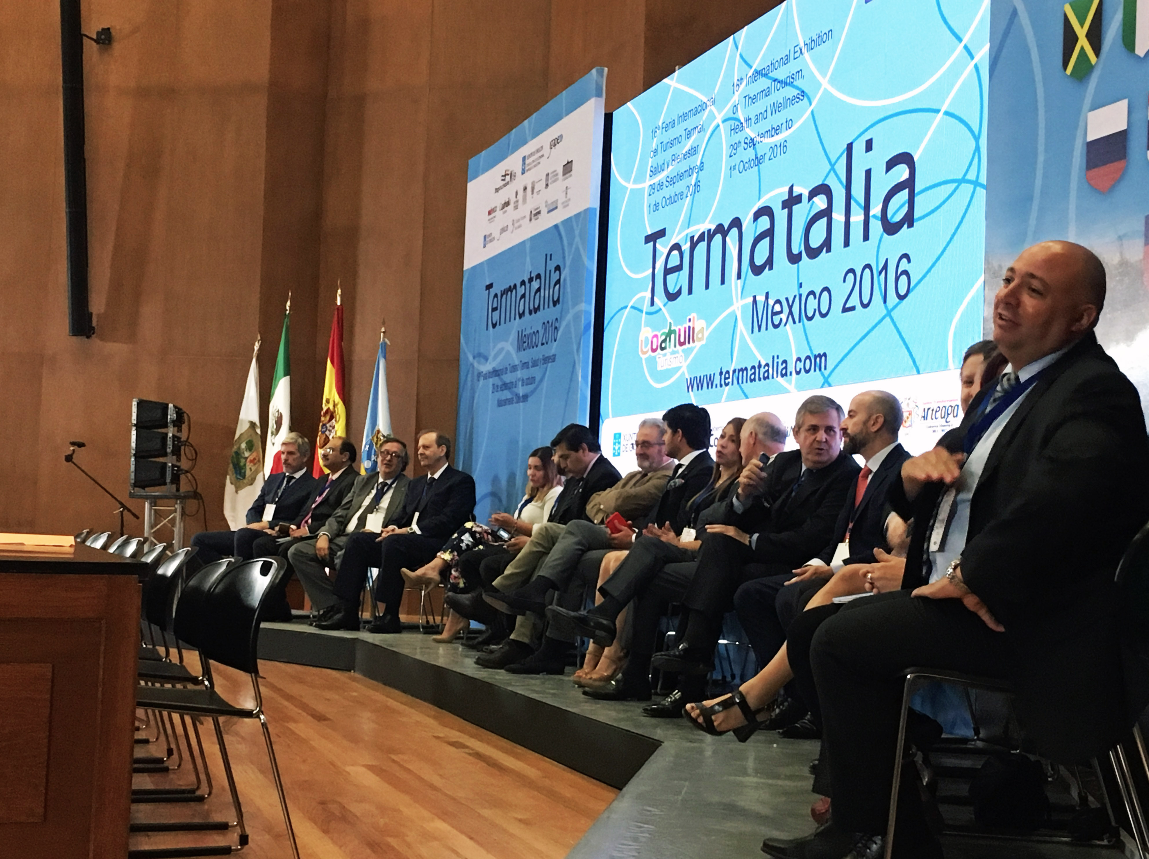An extended interview with Alejandro Rubin, director of Termatalia, by Antony Reeve-Crook.
Termatalia, the 16-year-old thermal tourism event, made its Mexican debut this year. It is the third edition to be held in Latin America, with professionals from 30 countries looking to expand their knowledge in relation to health tourism.
The Mexican edition of the show serves to show the potential of health tourism in the country, and its appeal to North Americans. According to the show's organiser health and wellness accounts for half of tourism revenues in Latin America and the Caribbean. This brand of tourism has experienced considerable expansion in Mexico in particular since 2007, doubling the number of spas to 3,000 across the country and more than 575 thermal baths.
In 2013, Mexico received 12 million visitors at its various health and wellness destinations, 60 per cent of them belonging to the Mexican domestic market. The forecasts are also very positive and he is expected to reach 20 million visitors in 2017.
The State of Coahuila in which Termatalia was held has 1,142 mineromedicinal springs.
EW caught up with show director Alexandro Rubin to find out how the event is making strides on a new continent.
Why has Termatalia travelled to Mexico?
As indicated by market research, Mexico represents 50 per cent of tourism revenues in Latin America and the Caribbean (not of South America, since Mexico belongs to the region of North America). If we take a look at the spas, is a country in growth, doubling the number of spas and spa centres from 2007-2018, which tells us it is a product in development with mineral-medicinal waters in at least 21 of the 32 federal states.
Termatalia has worked with professionals in the Mexican spa and thermalism sector since 2010, where it had a wide delegation, and year after year has gone in increase, until in 2014 the Government of Coahuila presented its formal candidacy to stage the event in Mexico.
Additionally, this is a very interesting tourism market, since the Mexican is a tourist who goes out and realises an expense raised in his trips, factor of great interest for the companies and institutions that promote its products and its tourist destinations in our fair.
While hydrology, sustainability and water culture were celebrated this year, what was – or at least new to the scope of the event?
All these topics are included in the culture of water, and Termatalia receives innovations in this field every year. This year it featured training in marketing at hot spring resorts and spa. In addition the area of healthy eating returned, with news and new trends in the field of gastronomy to promote healthy habits, including attendance by international chefs.
Would you like to stage an Asian edition in one of Asia's leading thermal cities?
Termatalia has a wide strategic network of 25 delegates operating in 39 regions and countries. Our link with Asia comes courtesy of the permanent Turkish delegation, which is the one that takes charge of the promotion of the fair not only in this country but also in other Asian countries. In the future, we would like to continue increasing our network of collaborators in Asia, in fact, in this year's edition includes participation from professionals from the United Arab Emirates and Thailand.
Which associations do you work with, and did they approach you to run it in Mexico or did you approach them?
In organising this event, we were involved not only with the main tourism players in Mexico, but also from Spain and other countries. Our main partner in this project this year was the Government of Coahuila, but we also had the support of associations such as the Latin American Association of Spa, Hotels of Mexico National Association, National Association of Suppliers and Distributors of Purified Water (ANPADAC), the Mexican Association of Travel Agencies or the Mexican Union of Galician Companies.
Other Termatalia international partners include the ESPA (European Spas Association), the Fehgra (Federation Empresaria Hotelera Gastronomy of the Republic Argentina) or the CACORE (Costa Rican's tourism Chamber), the Colombian Association of Tourism of Health and Welfare and of course from Spain as the Spanish Association of Wellness and Spa, the Galicia Tourism Cluster, the Cluster of the Thermal Water from Galicia or the Spanish Society of Medical Hydrology. All of them support Termatalia and encourage health and wellness Tourism in their respective countries, which sometimes leads them to promote their destinations in other regions – as was the case of this year.
What else should people know about Termatalia?
Termatalia's most important trait is the relational capital it generates between participants, and those companies that contribute to the project can really increase their network of contacts.









